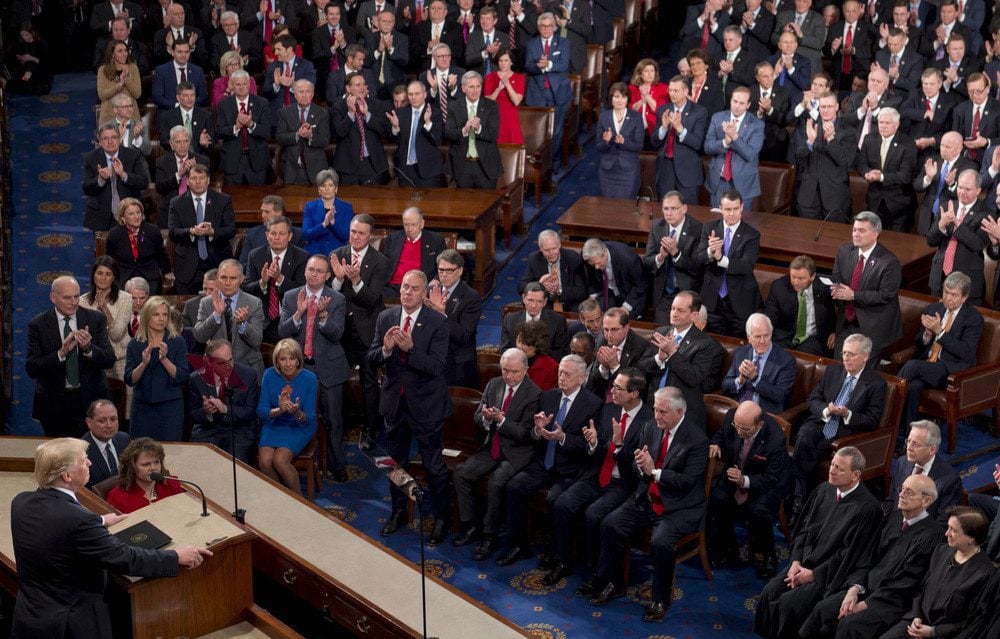
Tensions between the United States and the European Union have recently escalated as US President Donald Trump made a threat to withdraw from the Joint Comprehensive Plan of Action “JCPOA” that imposes restrictions on Iran’s nuclear program. European countries look at the Trump’s stance as a threat to an agreement that lifted sanctions on Iran while limiting its chances of becoming a nuclear-weapon state. Trump urged the US Congress to withdraw unilaterally from JCPOA by May 12, 2018 if the European countries that negotiated the deal with Iran (France, UK and Germany) failed to impose additional new controls in the agreement. The amendments that Washington asks for include imposing additional controls on Iran’s ballistic missile program and securing the permanency of the timeframe of the deal’s enforcement.
Amid a deadlock between Washington and European capitals, the “Guardian”, “New York Times”, “Le Monde” and “Der Spiegel” have recently published a letter made by 500 members of the parliaments of France, Germany and the United Kingdom urging their counterparts in the US Congress to stick to JCPOA. The text of the letter reads as follows: “On May 12, president Donald Trump might decide to finally abandon the JCPOA, the deal between France, the UK, Germany, the United States, China, Russia and Iran regarding Tehran’s nuclear program. Several hundred members of parliament of the three European signatory states, from all parts of the political spectrum, have decided to plead to the US congress to help keep this major diplomatic breakthrough alive. It is a pledge for transatlantic strength and a promise for further collaboration on the Iran issue and many other pressing challenges of international politics”.
To the Members of the United States Congress:
For more than a decade, we – Europeans, Americans, and the international community – have feared the imminent threat of a nuclear-armed Iran. To counter this threat and make the Middle East a safer place, the international community came together, using the might of diplomatic negotiations and the force of sanctions, agreed by most of the major economic powers.
After 13 years of joint diplomatic effort, we reached a major breakthrough and signed the Joint Comprehensive Plan of Action (JCPOA), an agreement between Iran, France, the UK, Germany, the US, China, and Russia, regarding Tehran‘s nuclear programme. With that, we were able to impose unprecedented scrutiny on the Iranian nuclear programme, dismantle most of their nuclear enrichment facilities, and drastically reduce the danger of a nuclear arms race. Not a drop of blood was spilt. Furthermore, these controls will not cease after the 10 years of the JCPOA: Iran will continue to be subject to the strict controls prescribed by the nuclear non-proliferation treaty, which will continue to limit enrichment.
The only reason we were able to achieve this breakthrough is that we stood together. Together, Europeans and Americans have proved that a strong and united transatlantic partnership can bring about a coalition extending to Russia and China, endorsed by the international community.

Our credibility is all the more urgently needed when we look at the instability in many parts of the world today. With regards to Iran it is an essential ingredient in our much-needed efforts to curb the country’s aggressive regional and domestic policy. As much as we share the concerns expressed by many about Iran’s behaviour, we are deeply convinced that these issues must be treated separately (as we are doing already) – and not within the context of the JCPOA.
It is in the US and Europe’s interest to prevent nuclear proliferation in a volatile region, and to maintain the transatlantic partnership as a reliable and credible driving force of world politics. We are open to dialogue on the best ways to tackle these challenges together. But let us be clear: if the deal breaks down, it will be well-nigh impossible to assemble another grand coalition built around sanctions against Iran. We must preserve what took us a decade to achieve and has proved to be effective.
Building coalitions and winning consensus is one of our main tasks as members of our respective parliaments. We therefore urge you to stand by the coalition we have formed to keep Iran‘s nuclear threat at bay. This would not only be a powerful sign of the durability of our transatlantic partnership, but also a message to the Iranian people.
Together, let’s keep the JCPOA alive and protect the fruits of successful diplomacy.


